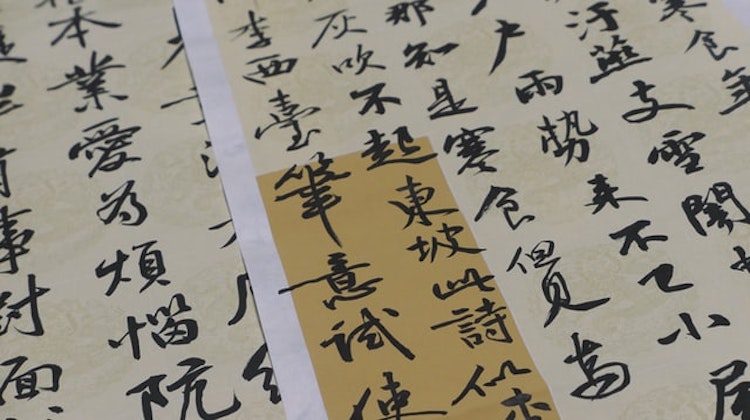Chinese vs Cantonese, what are the similarities and differences?
The short answer is that Chinese is a bigger category than Cantonese. When someone says that they can speak Chinese, they are more strictly referring to being able to speak Mandarin, or 普通话/Putonghua, which has the largest amount of speakers of all Chinese languages.
Cantonese is another one of the Chinese languages, a member of the Yue Chinese language family that has between 60 to 70 million speakers worldwide (the number fluctuates depending on which source is cited). The various Chinese languages: northern Mandarin, central Wu including Shanghainese, southern Yue including Cantonese, southern Min including Hokkien and Teochew, all share the same writing medium—Modern Standard Chinese, which has traditional and simplified varieties.
Modern Standard Chinese, the written form of all the contemporary Chinese languages, takes Beijing Mandarin accent as the standard pronunciation. An educated Cantonese speaker from Canton, or Guangzhou, can read and write Modern Standard Chinese in a simplified form; an educated Cantonese speaker from Hong Kong can read and write Modern Standard Chinese in traditional form. However, instead of Mandarin, they may choose to pronounce the same characters and words in Cantonese, which also has its own idioms and phrases. The same goes for an educated Shanghainese speaker.
In other words, the difference between Mandarin and Cantonese is mainly oral: Cantonese pronunciation is almost entirely different from that of Mandarin, whereas whether simplified or traditional characters are used is not nearly as big of a communication barrier to educated native speakers of any Chinese language. I can read texts from friends from Hong Kong and understand novels by Hong Kong authors, but I do not comprehend spoken Cantonese while traveling or watching movies without subtitles.
That said, even though Cantonese is generally perceived to be a spoken language, there is a list of distinctive vernacular characters such as 佢 (third-person singular pronoun, the Cantonese equivalent of 他) and 冇 (none, not, the opposite in meaning of 有, to have)commonly used in text messaging and other informal situations.
Here’s a quick giveaway: Cantonese has nine tones—beginners can just focus on remembering the first six—and Mandarin Chinese has four plus a neutral, “toneless” tone.
Is it easy to learn Cantonese if I already know Mandarin and vice-versa?
Spoiler alert: it is not easy. Scholars are hesitant to call Cantonese a dialect because it’s not mutually intelligible with Mandarin from a linguistics perspective, according to the UCLA language materials project. In other words, Cantonese to Mandarin and vice versa is a different language that one cannot readily understand without effort and exposure. Nowadays the majority of young people from Guangdong Province can speak fluent Mandarin because it’s adopted as the teaching medium at schools. It’s not necessarily the case for older generations in the region, especially those in smaller towns, who might need their grandchildren as translators to communicate with Mandarin Chinese speakers.
The fact that the standard romanization system of Cantonese, Jyutping, is not formally taught in K-12 education in Mainland China or in Hong Kong, adds a layer of difficulty for non-native Cantonese learners who are trying to learn the language systematically. When I learned Cantonese on iTalki, I found a Hong Kong teacher who could teach me the standardized spelling system which I can refer back to when I see new words. She said that she's part of the minority who’s trained in Cantonese phonetics and phonology because it’s required by her Chinese Language and Literature major in university—an average Hong Konger wouldn’t be able to tell you how to spell; they just acquire the Cantonese language naturally.
The silver lining is, if you have familiarity with Mandarin or vice versa, you might find it relatively easy to remember the vocabulary as you understand the meaning of the characters because of the shared writing system.
So…How do I start?
The best advice I can give is to define your objective and practice speaking as much as you can. If you want to learn Cantonese, find professional teachers when you first start, imitate how they speak, and repeat after audio and video materials. It really is the combination of exposure and effort that matters. Try to immerse yourself in the language environment as much as you can. If you are reading this far about Cantonese vs Chinese in English, you are probably a more dedicated language learner than an average person as well, and dedication and long-term efforts are essential to language learning. Good luck!







